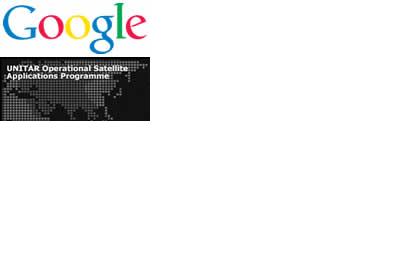After years of successful collaboration, UNITAR/UNOSAT (the operational satellite applications programme of UNITAR) and Google have strengthened their collaboration by signing an agreement that will give the crisis response and humanitarian community increased access to Google Map Maker source data for use in their disaster response and humanitarian activities, in more than 150 countries around the world.
In times of disaster and humanitarian relief, access to very high quality and up-to-date baseline data of critical infrastructure such as roads, bridges, hospitals, etc. has always been essential to help humanitarian and relief workers, as well as civic administrators on the ground, to make sense of satellite-based maps. Google Map Maker addresses a significant part of these data needs by enabling users to share their geographic expertise about the places where they live, visit and know in great detail. Those contributions are then reviewed and verified through community moderation, and made available on Google Maps and Earth in near real-time.
Under this agreement UNITAR/UNOSAT will act as a conduit within the United Nations family and its Member States to make Google Map Maker data more widely and easily available to aid organizations in the event of major disasters and for humanitarian efforts. Government and United Nations agencies will be able to contact UNOSAT/UNITAR (e-mail: unosat<a>unitar.org, please replace <a> with @ in the email address) for consideration as potential licensees of the Google Map Maker data, for their disaster response, humanitarian and development projects. This agreement builds on dozens of previous joint mapping efforts between UNITAR/UNOSAT and Google, such as the ones that were coordinated for Pakistan, Sudan, and West Africa.
“UNITAR/UNOSAT is always harnessing cutting edge remote sensing and geospatial technology. This new ability to integrate Google Map Maker data more widely into our satellite analysis will have a monumental impact on UNOSAT’s ongoing efforts to make geographic information a key part of providing information for modern humanitarian relief. This agreement will also bring key benefits to the broader disaster and humanitarian community by making Google Map Maker data more widely and easily available,” said Francesco Pisano, UNOSAT Manager. “It will also directly bolster the support that we provide to the United Nations sister agencies by the International Charter Space and Major Disasters, from which UNOSAT obtains satellite data at no cost in case of major natural disasters.”
“We’ve enjoyed a strong relationship with UNOSAT for many years, built on a common goal of unlocking the power of mapping information and technology to solve real life challenges,” said Brian McClendon, VP, Google Earth and Maps. “We’re proud and humbled to share Map Maker data that has been contributed by our users with organizations and others who do impactful work providing humanitarian and disaster relief in times of crisis.”

